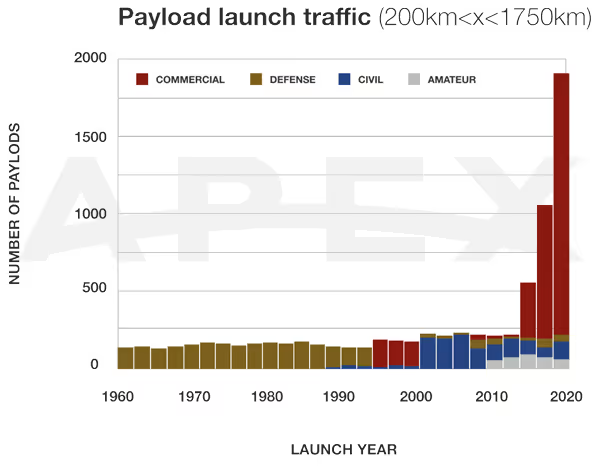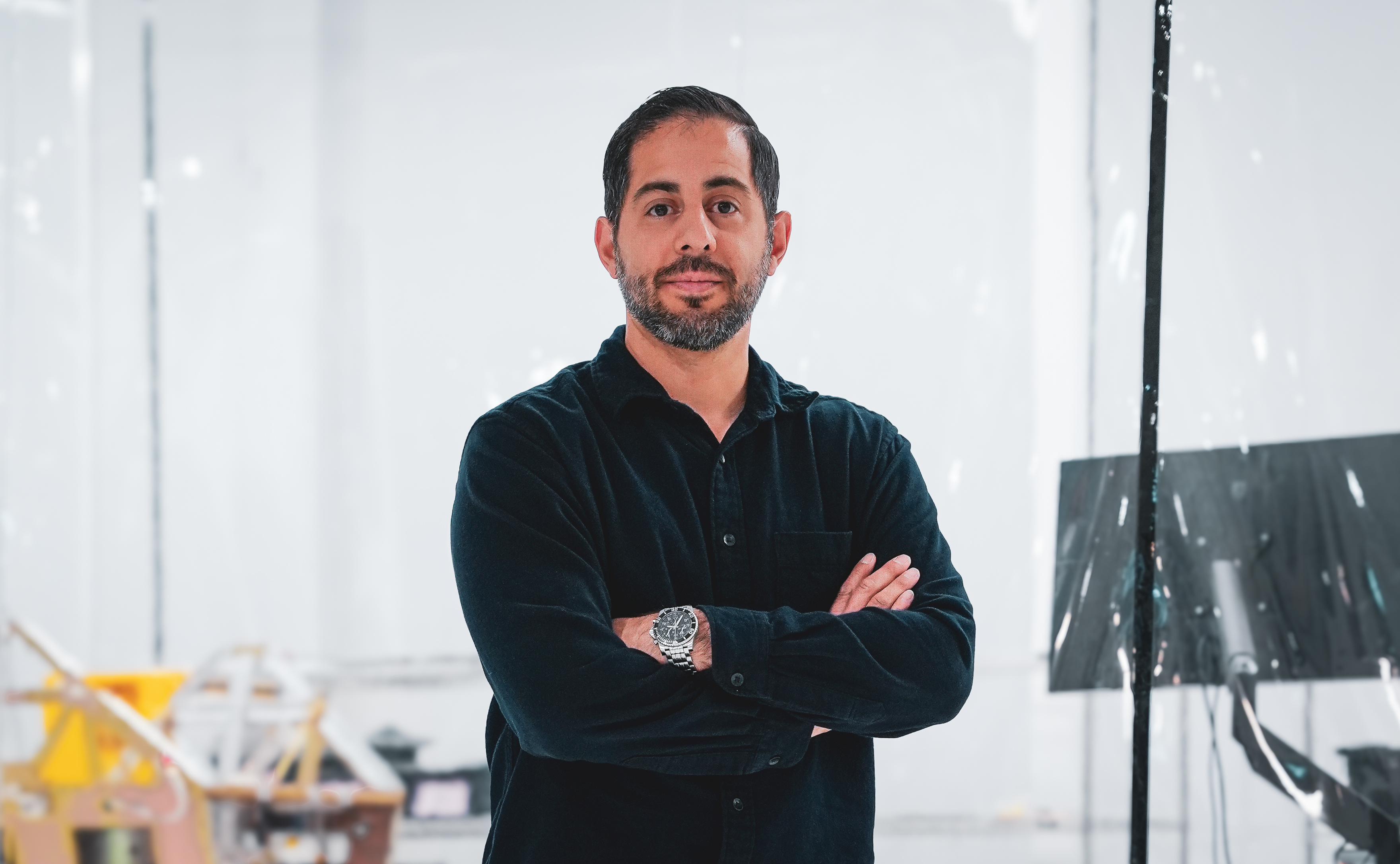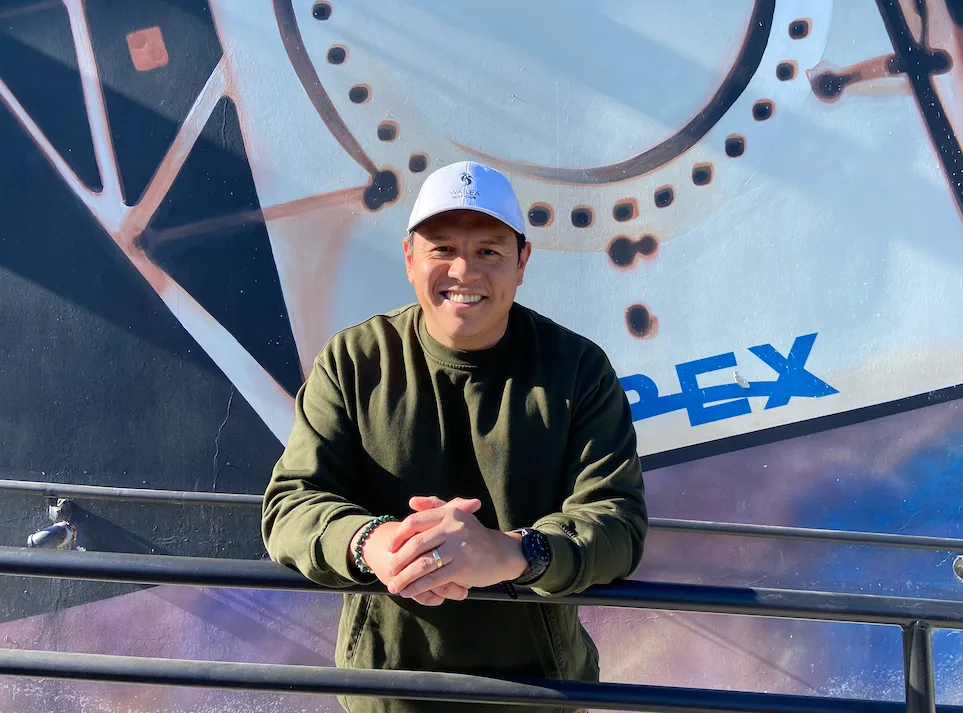- Compare platforms
October 24, 2022
Apex: The Future of Spacecraft

Humankind is rapidly democratizing access to space. Over the last several years, rocket launch costs have dramatically declined thanks to the innovations from companies reaching orbit, such as SpaceX, Rocket Lab, Astra, Firefly, and more. As these costs come down, a whole new world opportunities in the space industry begin to emerge.

There are three key elements required to get to space: the ride to space (the rocket), the sensor/camera/life support module/etc (the payload), and the spacecraft platform (the bus). The spacecraft platform – known in the industry as a satellite “bus” – holds the payload. The bus combined with the payload comprise the full spacecraft sent to space by a rocket.
Now that the innovation from rockets has reduced the cost to put an object into space, more payload business cases are viable: launching a new earth observation satellite or constellation like Starlink has suddenly become economical. As a result, there has been an exponential increase in the number of payloads to orbit.

Ian, Apex’s CEO, saw this firsthand at the last company he founded and sold to Palantir, called Synapse. He worked with the growing number of earth imaging payload datasets and realized something was missing. These payload partners were all held back by a new bottleneck: the satellite bus.
Satellite buses haven’t fundamentally changed in decades. While there have been some improvements, the industry standard has remained the same: build a custom bus for each payload. The process takes years and incurs many costs associated with new engineering work. This slows down payload companies and creates a bottleneck.
This process made sense at the time. The cost of launch used to be the driving factor of spacecraft— and that cost was directly coupled to the mass. The industry unit of measure is cost per kilogram. Every additional gram of weight of the bus or the payload was a direct cost. It was cost-efficient to custom build the bus for each payload.
A fundamental shift in the industry, however, has occurred: mass and cost efficiency have become decoupled. Max, Apex’s CTO, saw this firsthand during his tenure at SpaceX, where a transporter mission charged the same price for a 150kg spacecraft as for a 250kg spacecraft. Given this transformative change, we must begin to think about spacecraft differently and adapt to the new market conditions. We cannot just build spacecraft. We must manufacture them at scale.
Our company, Apex, does exactly that. As the cost of launch continues to decline and more payload businesses emerge, Apex offers spacecraft platforms that move at the speed of our commercial and government customers, removing satellite buses as a bottleneck from the process of our society’s expansion to space.
Apex manufactures spacecraft, providing an agile, reliable, and cost-effective pathway to space. Apex goes far beyond buses: we empower humankind to reach beyond our planet and remove the final barrier to entry to explore the stars that surround us.
If you share our philosophy, reach out to us at ApexSpace.com. We built Apex so you can stop worrying about your bus and focus on your payload.
Ad astra,
Ian & Max
RECENT POSTS


December 17, 2025
Apex Announces Strategic Cooperation Agreement with 4iG and REMRED to Bring Satellite Mass-Manufacturing to Europe


December 11, 2025
Q&A with Alvin Garcia, Director of GNC and Mission Ops
Meet Alvin Garcia, Director of GNC and Mission Ops!


November 25, 2025
Q&A with Andre Hinojosa, Director of Accounting
Meet Andre Hinojosa, Director of Accounting here at Apex!